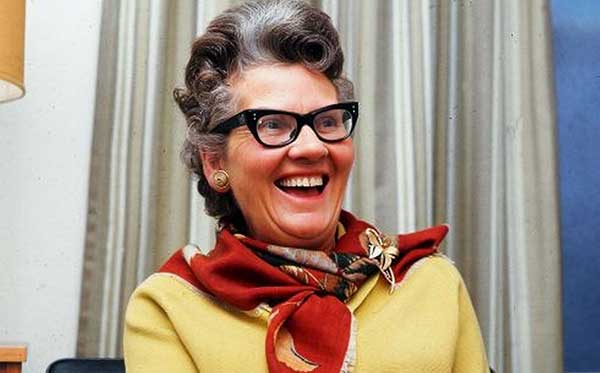
 Fruity language has its place – in many movies, fine. Outside York Minster, not so much, says Chris Titley in a foul-mouthed tirade
Fruity language has its place – in many movies, fine. Outside York Minster, not so much, says Chris Titley in a foul-mouthed tirade
Well I never thought I would be writing this. An old fuddy duddy column complaining about the prevalence of “bad” language.
What have I become, some sort of modern day Mary Whitehouse? I hope not. I despised her mean-spirited campaigning against what she always branded “filth” on television.
Combining almost pathological lack of humour with a monstrous ego, Whitehouse conducted a brutal crusade against freedom of expression.
So how come I now seem to be echoing her words on the issue of swearing?
Well I’m not. Whitehouse was always concerned about bad language on television and in films. If she were around today, she would no doubt be fulminating about the British Board of Film Classification decision to relax its rules on how much swearing there is in movies rated 15.
Despite the Daily Mary – sorry, the Daily Mail – reaching Whitehouse levels of apoplexy about this, it is a sensible decision.
Teen tirade
Fifteen year olds swear. I kid you not. Your normal teenager’s discourse is like an invitation to the F-Word Festival. They use swear words like they have just come off the ration.
It therefore seems daft to stop them from seeing a film because it might include words they hear every day in the school yard. As the BBFC rightly said, parents are more concerned about younger children picking up “bad words” and the new policy will see more restrictions on U certificate films.
And this may come as a shock to you, but the occasional blasphemy has slipped from my own lips. “What?” I hear you gasp. “A member of Her Majesty’s Press uttering an oath?”
Yes it’s true. The newsroom is a palace of profanity. News editors, seeking to draw my attention to some slipshod copy or a minor inaccuracy in a report just filed, have used language gaudy enough to decorate a rapper’s bedroom.
So my problem is not with swearing on the screen. Here the language is carefully regulated, by the BBFC on film and the watershed on TV. When Malcolm Tucker can regenerate into Doctor Who without fuss, I think we can agree that the nation has reached a consensus on this.
My problem is swearing in the street.
When to swear: a handy guide
To use a truism trotted out by my mother when on a random tidy bedroom patrol, “Everything has its place.” And with colourful language it’s not that difficult:
- In a newsroom: OK. On BBC News 24: Not OK.
- In the navy: OK. In the nursery. Not OK.
- In front of a comedy club crowd: OK. In front of a congregation: Not OK.
But here’s the one that too many people seem to have forgotten:
- In your own home: OK. On the street: Not OK.
Last summer we took our family out for a meal, thanks to the generosity of our benefactor, Miss Tess Coclubcard. It was a lovely evening, so after our early bird meal at La Vecchia Scuola on Low Petergate we went for a stroll.
As we walked round the Minster, three 20-something lads overtook us. They had abandoned their volume control, as young men often do the first pint in on a night out, and as they passed the four of us we couldn’t miss the boisterous exchange.
“I tell you, when that bird came on to you, I nearly f•••ing p***ed mesen.”
“F** off, you f****** dopey c***.”
All this as they brushed breezily passed our ten-year-old daughter and by a clearly shocked elderly couple.
Can it, mother flippers
If this was an isolated occurrence, their lack of self-awareness would have been the story. But it is the very normality of this behaviour which is remarkable. Such exchanges involving what TV announcers tend to call “very strong language from the start” are shouted across our streets all the time.
Maybe it’s because I am that fuddy duddy but the truth is I don’t like it. If you think “oh, they’re only words” that’s fine, but they can cause offence to other people and to use such words in a public place is simple bad manners.
Relaxing the restrictions on strong language in films seen by teenagers is fine. But bouffant my barnet and call me Mary, I’d like to hear a little less “language” in public.
